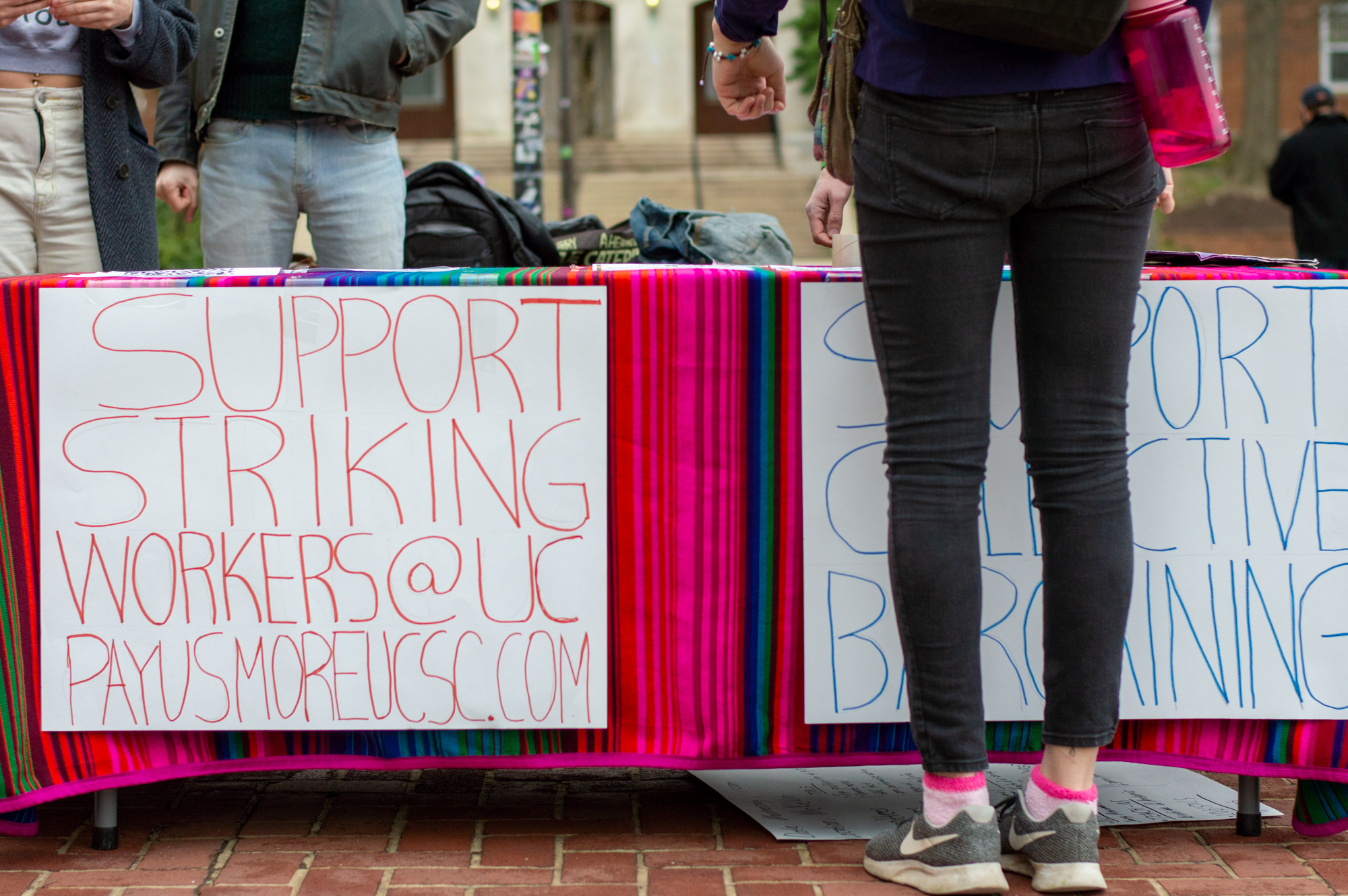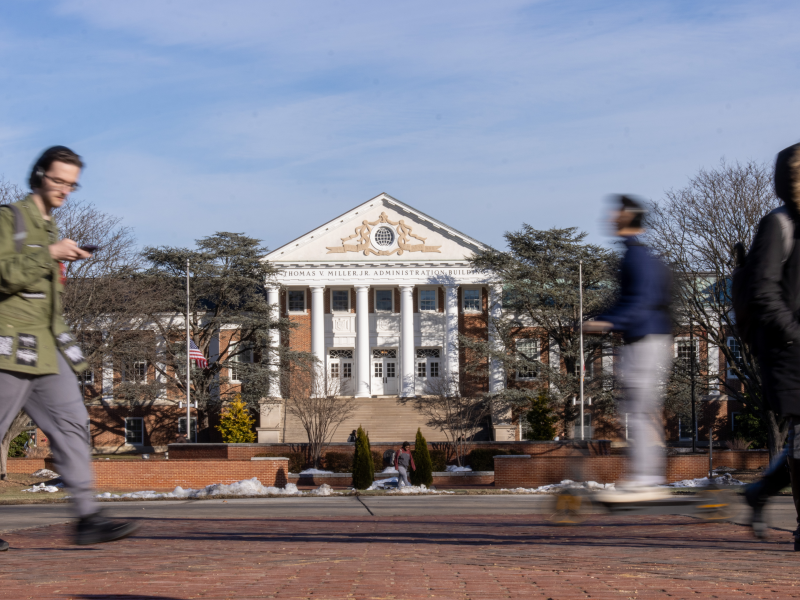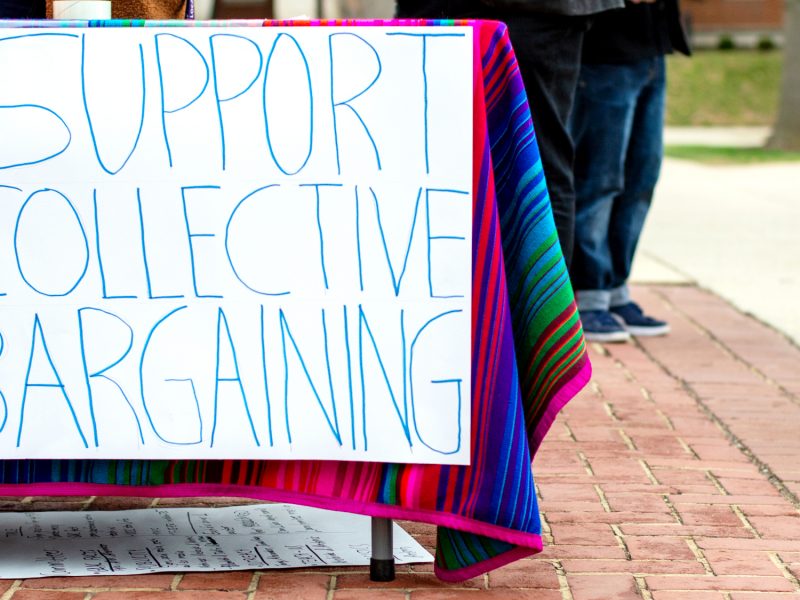Views expressed in opinion columns are the author’s own.
This week, the University of Maryland raised the minimum graduate assistant stipend. In the past, graduate school administrators claimed that stipends met the cost of attendance. This wasn’t true before the increase. And it’s still not true now.
While we welcome all efforts to improve the lives of graduate students, our stipends still fall devastatingly short. Scraps are not enough: This increase costs nearly $5 million a year for almost 4,000 graduate workers, which wouldn’t even cover the combined salaries of eight of this university’s highest-paid employees. The administration has shown time and time again that materially supporting its graduate workers is at the bottom of its priority list and we’re still suffering because of it.
If you look at the numbers, this is not up for debate. The Office of Student Financial Aid estimates a graduate student’s cost of attendance during the school year as $20,008, without tuition. The new minimum 9-month stipend for graduate assistants is $21,000. Some graduate students pay taxes of about $2,300 and university fees of at least $817. After these deductions, many of us will only make $17,883 once these changes take effect — a yearly deficit of $2,125. This deficit can grow even larger depending on one’s individual circumstances. Plus, the cost-of-attendance estimate misses many common expenses: It assumes you don’t pay rent or eat the other three months of the year and that you don’t have any health care costs. Using the MIT living-wage estimate for Prince George’s County, graduate assistants would need a yearly gross salary of at least $41,222. The gap between our stipends and the actual cost-of-living is the largest in the Big Ten.
How could this discrepancy exist? Well, it’s partially because the cost-of-attendance estimate is not designed for setting graduate student stipends, its sole purpose is to set a limit for federal loan amounts. This is why it comes from the financial aid office. As a result, it necessarily underestimates true costs. The government regulates how these calculations are put together to keep the size of loans in check (not that this seems to be doing much of anything). To see that it’s an underestimate, you only need to look at the cost-of-attendance survey the Office of Student Financial Aid is currently conducting: For every expense category, there’s a hard cap on the number you’re allowed to provide.
Of course, if your goal is instead to set stipend amounts, relying on a survey of how graduate workers spend their existing stipends amounts to epistemic malpractice. Think about it: If we give you $100 to spend on food and then ask you at the end of the week how much you spent on food, what have we learned about the cost of living? Nothing. Your answer will be no more than $100, no matter how expensive the food is.
This university needs to think about how it wants its graduate workers to live, and pay them accordingly. This process needs graduate worker input. Should we have to forgo health care, stability, children, marriage or homeownership? Does the administration expect people — some over a decade into adulthood — to live with roommates or subsist off the cold leftovers from faculty meetings? Is it reasonable for us to commute over an hour from campus or live in unsafe housing conditions to avoid high rents? These questions cannot be answered by a cost-of-attendance survey designed for an entirely different purpose. If a student wants to increase the loans they receive, they can ask the financial aid office to raise their individual cost-of-attendance. But we have no such recourse to increase our stipends.
Fundamentally, the administration has no idea what the lives of its graduate students look like. So, when the administration falsely claims that graduate stipends meet graduate cost-of-attendance, we are not surprised at its mistake. We can’t pay for groceries with tuition remission. Low stipends drive students into debt, dropping out or both. Because we are underpaid, we can’t save for the future — not that the university even offers us a retirement plan. The university says it is investing in our careers as researchers and teachers. In reality, we will pay for working at this university for the rest of our lives.
We’ve written this column because we are tired of empty promises and token gestures. We are asking, once more, for our stipends to be raised to a liveable wage. But we do not believe that will happen unless the administration is forced to. The poor treatment of this university’s graduate students will continue to erode the reputation of this institution. Small stipend increases won’t cut it. As College Park tries to attract wealthy Washington, D.C., commuters, the gap between our pay and living costs will only grow.
The long-term solution to this problem is collective bargaining rights for graduate workers. As members of Fearless Student Employees, we see labor rights as a crucial part of a just university. We ask you to join us. Only when the administration has to negotiate with its workers will it care for their welfare.
Sam DiBella is a teaching assistant in the iSchool. He can be reached at sdibella@umd.edu.
Alexander Hoyle is a research assistant in computer science. He can be reached at hoyle@umd.edu.



